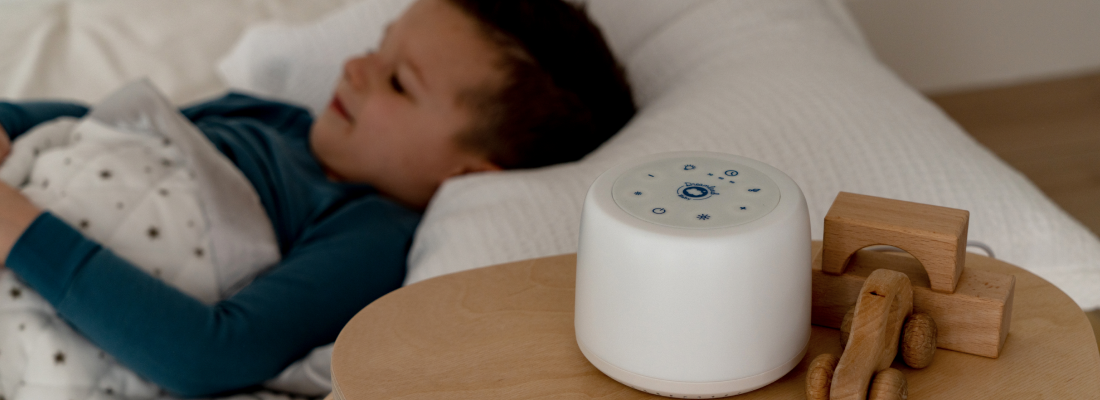Fall daylight savings is around the corner, and you may be looking forward to getting that extra hour of sleep - unless you have small children. If you have a baby, you may be kicking off harvest season an hour or two earlier, instead of gaining that extra hour of sweet sleep that usually comes with “falling back.” You could just succumb to the fact that you’ll be first in line for a pumpkin spice latte, or you can keep reading to learn how to help your baby adjust during the daylight savings time changes and all the secrets to surviving it.
Does daylight savings time affect baby sleep?
As your baby transitions from a dark, peaceful life in the womb to a big, bright world, their internal clocks take some time to align with that of the sun. When the clock springs forward or falls back with daylight savings time, it can sometimes wreak havoc on your little one’s developing schedule.
Is it normal for babies to wake up early after the daylight savings clock change?
Unfortunately, it is normal for babies to wake up early after the daylight savings clock changes. The change in the clocks can cause a temporary mismatch between their internal body clock, or circadian rhythm, and the actual time. This battle of the clocks after daylight savings can cause changes in their sleep-wake cycle, including an earlier wake up time. Don’t worry though, it shouldn’t take too long for these clocks to fall into sync.
How long does it take babies to adjust to daylight savings?
Much like with adults, each baby is different as may adjust to daylight savings time changes at different paces. Some go-with-the-flow babies may not even be phased by darker evenings and brighter mornings, while others may take a few weeks to hop on the sun’s new schedule.
Here are our two best tips to keep in mind if when the time changed:
1. Maintain consistency:
As difficult as any changes to your baby’s schedule may be, it’s important to stick to their regular sleep/wake windows. An overtired baby will not make any type of transition any easier.
2. Be patient:
This too shall pass. Until spring time, anyway. Children of different ages have different needs in the sleep department, and because of this, adjusting to daylight savings may look differently depending on your child’s age.
How do I help a newborn adjust to the fall time change?
Newborns may be blissfully unaware of any changes to their schedule at all, since they typically sleep 12-16 hours per day anyways. As long as your newborn has a full tummy and a clean diaper, they should be content. Their circadian rhythm is still highly undeveloped, and “falling back” isn’t likely to cause any trouble in their sleep schedule. Keeping your routine as predictable as possible will help your newborn adjust to the fall time change without a hitch.
How can I help my baby adjust to the daylight savings time change?
As your baby gets a little bit older and has grown out of their sleepy fourth trimester, they may start to have a bit more difficulty with adjusting to the daylight savings time change. By the time your baby is 3 months, their circadian rhythm has just started to develop and they will continue to hone in on their night and day distinctions for their first year of life. This means that any changes to that night and day schedule may come with some hiccups. The best thing you can do to help your baby adjust to the daylight savings time change is control their exposure to light. This will help maintain the length of their already established sleep/wake windows. To make the daylight savings time transition a little easier, you can gradually adjust bedtime and wake up time in the days leading up to daylight savings to make that time warp feel a little less drastic.
How do you help a toddler adjust to the time change?
Toddlers, however, may have a more difficult time adjusting to the time change. You can’t always just pull back the curtains or turn on the light to “trick” them into thinking it's earlier or later. Here are some things you can do to make the transition easier for your toddler:
- Make those gradual adjustments: Even just adjusting bed/wake time 5-10 minutes a day can help to get them on their new schedule.
- Play outside: Sunlight is the number one factor when it comes to our circadian rhythms. As your toddler plays outside during the day, their body will hop on schedule naturally.
- Create a calm sleep environment: Dim lights in a quiet space with their favorite Dream Weighted Toddler Blanket after a long day of play will help set the stage for a good night’s sleep - no matter what time it feels like.
Conclusion
As your baby adjusts to how things work outside the womb, getting good sleep is extremely important for their health and development. No matter what the clock says, your baby should be getting enough sleep to support their rapidly growing mind and body. To help your baby fall asleep faster and stay asleep longer, grab a Dreamland Baby Gently Weighted Sleep Sack.


Share:
How Your Baby’s Sleep Changes In The Fall
How To Choose The Best Toddler Pillow